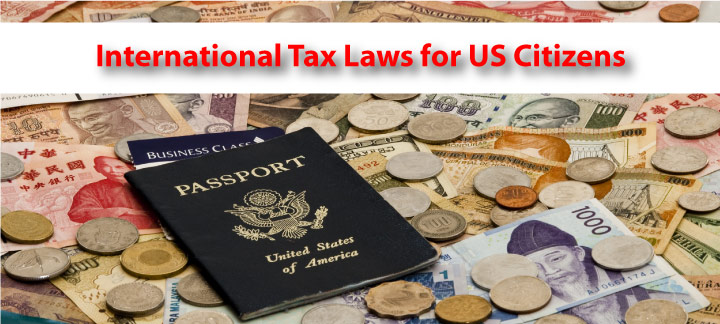International Tax Laws for U.S. Citizens
If you are a U.S. citizen, but you earn income abroad, the US tax rules that apply to your foreign income are largely similar to those that apply to your domestic income. Ignorance of US international tax laws is not a defense and can quickly get you into deep financial trouble.
You Must Pay Income Tax on Income Earned Abroad
As a U.S. citizen, your worldwide income is subject to U.S. income tax. You must report to the IRS all income you have earned in the calendar year from all sources inside or outside of the U.S. and pay any applicable tax on foreign income. The rule applies to you if you receive W-2 or 1099 forms from the foreign income source, and also if you do not receive these forms. This is true regardless of where you reside. IRS Publication 525 – Taxable and Nontaxable Income, http://www.irs.gov/pub/irs-pdf/p525.pdf.
Do I Need to Pay U.S. Income Taxes if I Reside in Another Country?
Yes, the income that you earn in your country of residence is still subject to U.S. taxation because you are a U.S. citizen. However, the IRS provides certain foreign earned income exclusions and foreign income tax credits to U.S. citizens living abroad. You may qualify for these exclusions and credits, which can reduce the tax you owe to the U.S. on your worldwide income.
You are also required to file an income tax return to the IRS, even if you file and pay taxes in another country. This rule applies to U.S. citizens and residents living abroad. Your duty to file a U.S. tax return remains unless you renounce your U.S. citizenship. IRS Publication 525 – Taxable and Nontaxable Income, http://www.irs.gov/pub/irs-pdf/p525.pdf.
When Should I File My Tax Return if I am Residing Abroad?
As a general rule, a U.S. tax return is typically due on April 15 of the calendar year. However, if you are a U.S. citizen living abroad and your main place of business or post of duty is outside the U.S., then you are granted an automatic two month extension for filing your tax return. This means that you have until June 15 of the calendar year to file your U.S. tax return and pay any U.S. taxes due. If you choose to file under the two month extension, you must write a statement indicating how you qualify for the exception and include the statement with your tax return. IRS Publication 54 – Tax Guide for U.S. Citizens and Residents Abroad, http://www.irs.gov/publications/p54/index.html.
A Tax Attorney Can Help Resolve your Worldwide Taxation Questions
If you are a U.S. Citizen with foreign income or living abroad, you may have many questions about how U.S. international tax laws impact you. In this situation, you may need the assistance of a knowledgeable tax attorney to help you evaluate all aspects of your situation. The Tax Lawyer - William D. Hartsock has been successfully helping clients comply with U.S. International Tax Laws and deal with issues related to worldwide taxation since the early 1980s. Mr. Hartsock offers free consultations with the full benefit and protections of attorney client privilege to help people clearly understand their situation and options based on the circumstances of their case. To schedule your free consultation simply fill out the contact form found on this page, or call (858) 481-4844.



Comments (0)